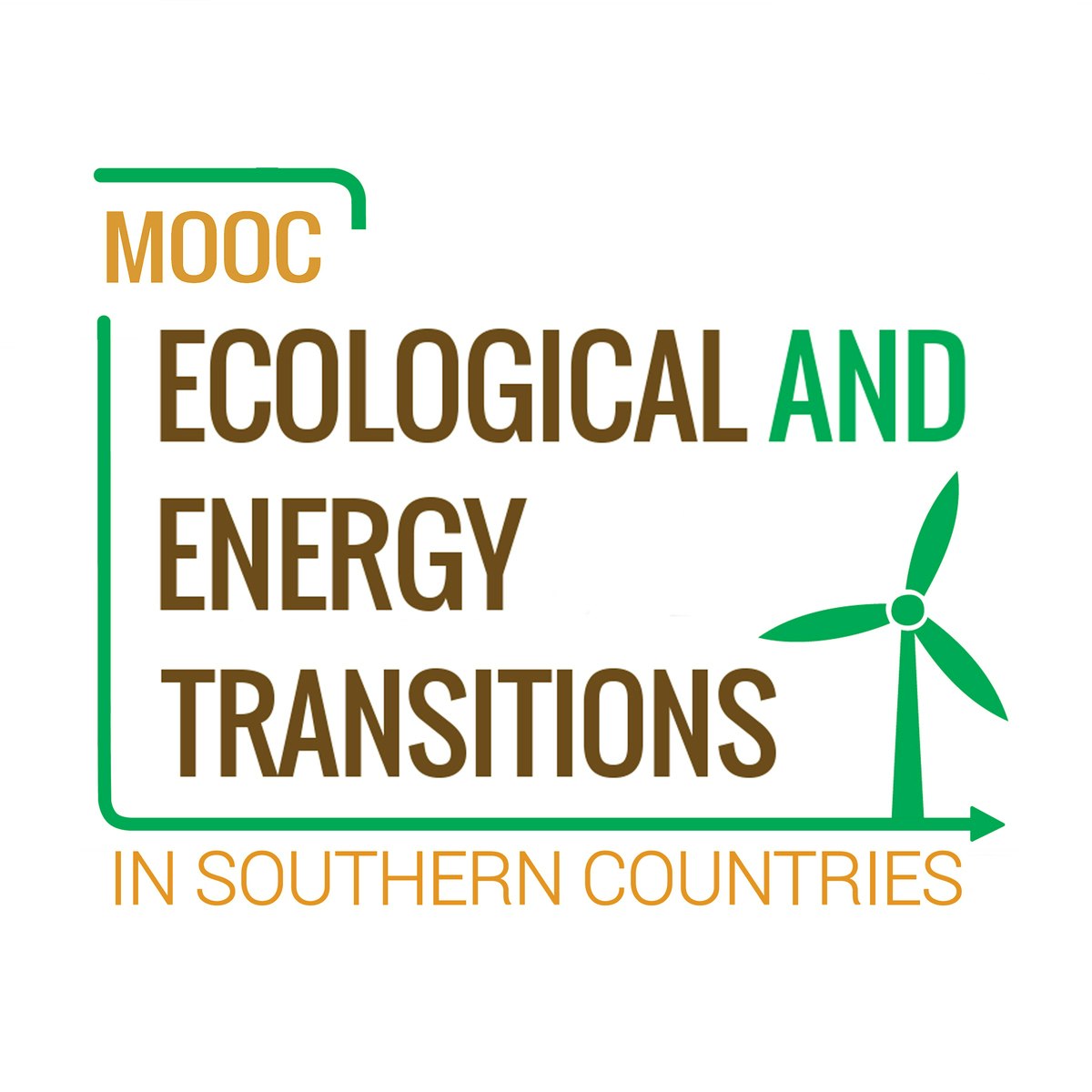Energy Manager
Energy Manager: Shaping a Sustainable Future
An Energy Manager is a professional dedicated to optimizing energy consumption within an organization. Their work involves developing, implementing, and monitoring energy efficiency strategies to reduce costs, minimize environmental impact, and ensure compliance with regulations. Think of them as the strategic planners and problem-solvers focused specifically on how energy is used, sourced, and conserved across facilities, processes, or entire enterprises.
Working as an Energy Manager offers intellectually stimulating challenges and tangible results. You might find excitement in diagnosing complex energy systems to uncover hidden inefficiencies, satisfaction in seeing your initiatives lead to significant cost savings, or purpose in contributing directly to sustainability goals and climate change mitigation efforts. It's a role that blends technical analysis with practical implementation and stakeholder engagement.
What Does an Energy Manager Do?
Understanding the day-to-day life of an Energy Manager provides insight into the skills and mindset required for success in this field. It's a dynamic role that blends technical expertise with strategic thinking and communication.
Core Responsibilities and Daily Tasks
The primary goal of an Energy Manager is to improve an organization's energy performance. This involves a range of tasks, starting with comprehensive energy audits to assess current consumption patterns and identify areas for improvement. They meticulously collect and analyze energy data, looking for trends, anomalies, and opportunities for savings.
Based on this analysis, Energy Managers develop strategic energy management plans. These plans outline specific projects, targets, timelines, and budgets for implementing energy-saving measures. This could involve anything from upgrading lighting systems and optimizing HVAC operations to recommending process changes in industrial settings or integrating renewable energy sources.
A significant part of the job involves ensuring compliance with local, national, and international energy regulations and standards. This includes preparing reports, tracking greenhouse gas emissions, and staying updated on evolving policy landscapes. They often manage energy procurement strategies, seeking favorable contracts with utility providers or exploring alternative energy sourcing options.
Essential Tools and Technologies
Energy Managers rely on a suite of specialized tools to perform their duties effectively. Energy modeling software helps simulate the energy performance of buildings or systems, allowing managers to predict the impact of proposed efficiency measures before implementation. Energy Management Information Systems (EMIS) are crucial for collecting, storing, and analyzing vast amounts of energy data from meters and sensors.
Building Automation Systems (BAS) and control systems are often managed or influenced by Energy Managers to optimize heating, ventilation, air conditioning (HVAC), and lighting schedules. Increasingly, Internet of Things (IoT) devices and sensors provide real-time data on equipment performance and environmental conditions, enabling more granular control and faster identification of issues.
Data analysis tools, ranging from advanced spreadsheet techniques to specialized analytics platforms, are fundamental for interpreting data and generating actionable insights. Familiarity with utility billing structures and tariff analysis is also essential for cost management and procurement.
These courses provide insight into the practical tools and economic considerations central to energy management.
Collaboration and Communication
Energy management is rarely a solo effort. Energy Managers must collaborate effectively with a wide range of stakeholders. This includes facilities management teams who implement and maintain equipment, finance departments who approve budgets and track savings, and senior executives who set organizational strategy and sustainability goals.
Strong communication skills are vital for presenting findings, justifying investments in energy efficiency projects, and promoting energy-aware behavior among employees. Energy Managers often act as internal consultants, educating colleagues and building consensus around energy initiatives.
Externally, they may interact with utility companies, equipment vendors, engineering consultants, and regulatory agencies. Building strong professional relationships is key to navigating complex projects and staying informed about technological advancements and policy changes.
Regulatory Landscape and Reporting
Navigating the complex web of energy regulations is a critical function. Energy Managers must understand requirements related to energy efficiency standards (like building codes), emissions reporting (e.g., greenhouse gas inventories), and sometimes renewable energy mandates.
They are responsible for accurately tracking energy usage and emissions data and preparing reports for internal stakeholders and external regulatory bodies. This requires meticulous record-keeping and an understanding of different reporting protocols and frameworks.
Staying abreast of changes in energy policy is crucial, as new regulations can create both compliance challenges and opportunities for accessing incentives or grants for energy efficiency projects. This requires continuous learning and engagement with industry news and government updates.
Formal Education Pathways
Embarking on a career as an Energy Manager often begins with a solid educational foundation. While paths vary, certain academic backgrounds provide the necessary technical knowledge and analytical skills.
Relevant Undergraduate Degrees
Many Energy Managers start with a bachelor's degree in an engineering field. Mechanical, electrical, industrial, or chemical engineering programs offer strong foundations in thermodynamics, power systems, process optimization, and data analysis – all relevant to understanding energy use in buildings and industrial processes.
Environmental science or environmental studies degrees are also common pathways. These programs provide a broader understanding of ecological systems, climate change science, sustainability principles, and environmental policy, which are crucial for contextualizing energy management within larger environmental goals.
Other relevant degrees might include physics, architecture (with a focus on sustainable design), or even business degrees with a concentration in sustainability or operations management. The key is acquiring strong analytical skills and a fundamental understanding of physical systems and energy principles.
Specialized Graduate Programs
For those seeking deeper expertise or leadership roles, a master's degree specifically focused on energy management, sustainable energy, or building science can be highly beneficial. These programs delve into advanced topics like energy auditing techniques, renewable energy integration, energy policy analysis, and project finance for energy initiatives.
Some universities offer specialized tracks within broader engineering or environmental management programs. These graduate degrees often involve hands-on projects, internships, or research, providing practical experience alongside advanced theoretical knowledge. A master's degree can accelerate career progression and open doors to more specialized roles.
Doctoral (PhD) research in areas related to energy management often focuses on cutting-edge topics. This might include developing advanced algorithms for smart grid optimization, analyzing the economic impacts of energy policies, pioneering new materials for energy efficiency, or exploring behavioral science approaches to energy conservation.
These courses offer insights into energy systems for buildings and the broader energy transition, relevant for those pursuing formal education.
Professional Certifications
Beyond formal degrees, professional certifications are highly valued in the energy management field. They demonstrate a standardized level of knowledge and competence. The most recognized certification globally is the Certified Energy Manager (CEM), offered by the Association of Energy Engineers (AEE).
Other valuable certifications include the Certified Measurement and Verification Professional (CMVP), which focuses on quantifying energy savings, and various credentials related to building commissioning, energy auditing, or specific technologies like LEED (Leadership in Energy and Environmental Design) for green buildings.
Obtaining these certifications typically requires a combination of education, relevant work experience, and passing a rigorous examination. Many employers prioritize candidates with these credentials, and they can be crucial for career advancement, particularly in consulting or specialized technical roles. Continuously maintaining these certifications often requires ongoing professional development.
Online Learning and Skill Development
The journey to becoming an Energy Manager, or advancing within the field, increasingly involves leveraging online learning resources. Online courses offer flexibility and accessibility for acquiring specific technical skills and broadening knowledge, whether you're starting, transitioning, or upskilling.
Acquiring Essential Technical Skills Online
Online platforms provide numerous courses focused on the core technical competencies required for energy management. You can find targeted training in energy auditing methodologies, learning how to systematically inspect facilities, collect data, and identify waste. Courses often cover the use of specific auditing tools and reporting techniques.
Data analytics is another critical skill readily learned online. Courses range from foundational statistics and data visualization to advanced techniques using software like Excel or specialized platforms for analyzing energy consumption patterns, benchmarking performance, and verifying savings from efficiency projects. Understanding building systems (HVAC, lighting, controls) and industrial processes can also be significantly enhanced through dedicated online modules.
Furthermore, online learning is ideal for staying current with rapidly evolving technologies like renewable energy systems (solar, wind), energy storage solutions, and smart building technologies. Many courses offer practical insights into the design, implementation, and economic evaluation of these systems. OpenCourser aggregates thousands of such courses, making it easier to find relevant training across various providers.
These courses provide practical skills in energy auditing, efficiency, and sustainability analysis, ideal for online learning.
Developing Soft Skills for Success
While technical expertise is fundamental, soft skills are equally crucial for an effective Energy Manager. Online courses can help develop capabilities in project management, teaching methodologies for planning, executing, and monitoring energy efficiency projects from conception to completion, including budget and timeline management.
Communication and stakeholder engagement are vital for gaining buy-in, reporting progress, and fostering an energy-conscious culture. Online courses focusing on business communication, presentation skills, negotiation, and influencing can significantly enhance an Energy Manager's effectiveness in interacting with diverse groups, from technicians to executives.
Problem-solving and critical thinking skills are honed through case studies and simulations often found in online learning environments. These platforms can provide frameworks for analyzing complex energy challenges, evaluating potential solutions, and making data-driven decisions under uncertainty.
Building a Portfolio and Practical Experience
While online courses provide knowledge, demonstrating practical application is key, especially for career changers. Some advanced online courses incorporate virtual simulations or projects where learners can apply concepts in a risk-free environment, perhaps modeling building energy use or analyzing sample datasets.
Consider supplementing online coursework with personal projects. Conduct an energy audit of your own home or a community building (with permission). Analyze publicly available energy data for your city or region. These self-initiated projects demonstrate initiative and allow you to practice applying learned skills, creating tangible results you can showcase to potential employers.
Look for online programs or courses that partner with industry tools or offer virtual labs. Engaging with these resources helps bridge the gap between theoretical knowledge and practical application, making your online learning experience more robust and directly applicable to real-world scenarios.
Integrating Online Learning with Certification Goals
Online courses can be instrumental in preparing for professional certifications like the CEM or CMVP. Many platforms offer specific exam preparation courses that cover the required body of knowledge, provide practice questions, and simulate the exam experience.
Even general courses on energy auditing, HVAC systems, or energy finance contribute towards the foundational knowledge needed for certification exams. Use online learning to identify and fill knowledge gaps before attempting certification. Check certification body requirements, as some online courses may even count towards required professional development hours.
OpenCourser's "Save to List" feature can help you curate a personalized learning path, combining foundational courses, skill-specific training, and certification prep modules to systematically build the competencies needed for a successful energy management career.
Career Progression for Energy Managers
The field of energy management offers diverse and rewarding career paths with opportunities for growth, specialization, and leadership. Understanding the typical trajectory can help aspiring and current professionals plan their development.
Entry-Level Roles and Foundations
Individuals often enter the field in roles like Energy Analyst, Sustainability Coordinator, or Junior Energy Engineer. In these positions, the focus is typically on data collection and analysis, supporting senior managers with audits, preparing reports, and assisting with project implementation logistics.
These entry-level roles provide invaluable hands-on experience with energy systems, data management tools, and organizational processes. It's a crucial phase for building foundational technical skills, understanding regulatory requirements, and learning how energy decisions impact broader business operations.
Gaining experience in specific software, performing basic energy calculations, and effectively communicating findings are key objectives at this stage. Pursuing relevant certifications early on can also accelerate progression.
Mid-Career Specialization and Management
With several years of experience, professionals typically advance to Energy Manager roles, taking on greater responsibility for developing and executing energy strategies. At this stage, specialization often occurs, focusing on particular sectors like industrial manufacturing, commercial real estate, healthcare, municipalities, or higher education.
Mid-career professionals manage larger projects, oversee budgets, negotiate contracts, and often supervise junior staff or coordinate cross-functional teams. They develop deeper expertise in specific technologies or areas like renewable energy integration, demand response programs, or advanced building controls.
Strong project management, financial analysis, and stakeholder management skills become increasingly important. Networking within the industry and staying current with technological and policy trends are vital for continued growth and effectiveness. According to salary comparison sites and industry surveys, mid-career Energy Managers can expect competitive compensation, though actual figures vary significantly by location, industry, experience, and certifications. Grounding searches on sites like the Bureau of Labor Statistics Occupational Outlook Handbook (while not specific to "Energy Manager", related fields offer context) or industry-specific reports can provide benchmarks.
Leadership Paths and Consultancy
Experienced Energy Managers can progress into senior leadership roles such as Director of Sustainability, Head of Energy Management, or Chief Sustainability Officer. These positions involve setting long-term organizational strategy, managing large teams and budgets, influencing corporate policy, and representing the organization externally on energy and sustainability matters.
Another common path is moving into energy consulting. Consultants work with multiple clients across various industries, providing expert advice on energy efficiency, sustainability strategy, regulatory compliance, and technology implementation. This requires strong analytical, communication, and business development skills.
Some Energy Managers leverage their expertise to become entrepreneurs, starting their own consulting firms or developing innovative energy technologies or services. These leadership roles often require a blend of deep technical knowledge, strategic vision, financial acumen, and exceptional communication abilities.
Global Opportunities and Mobility
Energy management is a global field, driven by international climate agreements and the universal need for resource efficiency. Professionals with experience and recognized certifications may find opportunities to work abroad, particularly in regions with strong commitments to decarbonization and sustainability.
Multinational corporations often have energy management teams operating across different countries, offering potential for internal transfers. International organizations and development banks also employ energy experts for projects in various parts of the world.
Working internationally often requires adaptability, cross-cultural communication skills, and sometimes proficiency in other languages. Understanding regional energy markets, policies, and technological landscapes is crucial for success in global roles.
Energy Manager in the Transition to Renewable Energy
The global shift towards renewable energy sources profoundly impacts the role and responsibilities of Energy Managers. They are increasingly central figures in navigating this complex transition within their organizations.
Facilitating Grid Modernization and Integration
As the energy grid incorporates more variable renewable sources like solar and wind, Energy Managers play a role in managing their organization's interaction with this evolving system. This includes evaluating opportunities for on-site renewable generation, energy storage solutions (like batteries), and participation in demand response programs.
They analyze the feasibility and economics of integrating these technologies, considering factors like intermittency, grid interconnection requirements, and potential revenue streams or cost savings. Understanding smart grid technologies and how buildings or facilities can interact dynamically with the grid is becoming increasingly important.
This often involves collaborating with utilities and technology providers to implement solutions that enhance grid stability while optimizing the organization's energy costs and resilience.
These resources delve into the complexities of the energy transition and related technologies.
Navigating Decarbonization Policies
Governments worldwide are implementing policies aimed at reducing carbon emissions, often targeting energy consumption in buildings and industry. Energy Managers are tasked with understanding these policies, ensuring compliance, and identifying strategic opportunities they present.
This might involve tracking carbon footprints, developing decarbonization roadmaps, evaluating investments in low-carbon technologies, and accessing incentives or carbon credits. They translate policy requirements into actionable strategies for their organizations.
Staying informed about evolving carbon pricing mechanisms, emissions standards, and renewable portfolio standards is critical. Energy Managers help organizations anticipate regulatory changes and position themselves advantageously in a low-carbon economy.
Evaluating Investments in Efficiency and Renewables
The transition necessitates significant investment in both energy efficiency and renewable energy technologies. Energy Managers are key in evaluating these investments, using tools like life-cycle cost analysis and return on investment (ROI) calculations.
They must assess the technical viability, operational impacts, and financial returns of various options, from LED lighting retrofits and HVAC upgrades to solar panel installations and combined heat and power (CHP) systems. They build business cases to secure funding for projects that align with strategic energy goals.
Understanding financing mechanisms, grants, tax incentives, and power purchase agreements (PPAs) is crucial for making projects economically attractive. Their analysis helps organizations prioritize investments that deliver the best energy, cost, and environmental outcomes.
Managing Risks in Evolving Energy Systems
While transitioning to new energy systems offers benefits, it also introduces new risks. Energy Managers must consider the reliability of renewable energy sources, the cybersecurity implications of interconnected smart technologies, and the operational challenges of integrating new systems with existing infrastructure.
They play a role in developing risk mitigation strategies, such as incorporating energy storage for reliability, implementing robust cybersecurity protocols for control systems, and ensuring proper maintenance and operational procedures for new technologies.
Managing the transition also involves addressing the potential obsolescence of legacy fossil fuel-based systems and planning for their eventual decommissioning or repurposing. This requires foresight and strategic planning to ensure energy security and operational continuity throughout the transition period.
Global Opportunities and Challenges
The field of energy management presents distinct opportunities and challenges that vary significantly across different regions and cultural contexts. Understanding this global landscape is vital for professionals considering international careers or working for multinational organizations.
Regional Variations in Demand and Policy
The demand for Energy Managers and the specific focus of their roles differ globally. Regions with stringent climate policies and high energy costs, such as the European Union, often have well-established energy management practices and strong regulatory drivers for efficiency.
In contrast, rapidly industrializing emerging markets may present different challenges and opportunities, potentially focusing more on building new energy-efficient infrastructure, managing energy demand growth, and leapfrogging older technologies. The availability of incentives, the maturity of the energy services market, and governmental priorities shape the landscape.
Understanding these regional nuances is crucial. What constitutes best practice or a priority in one region may be less relevant or feasible in another due to differences in climate, economic structure, grid infrastructure, and policy frameworks.
This course explores sustainability challenges in diverse global contexts.
Cultural Factors and Implementation
Implementing energy management strategies effectively often involves changing human behavior and organizational culture, which can be heavily influenced by local norms and values. Approaches to communication, decision-making, and risk tolerance can vary significantly across cultures.
Building trust and rapport with local teams, understanding hierarchical structures, and adapting communication styles are essential for success in international settings. What motivates employees to conserve energy or adopt new technologies might differ based on cultural context.
Energy Managers working globally need cultural intelligence and sensitivity to navigate these differences effectively and ensure that energy initiatives are embraced and sustained locally.
Language and Communication in Multinational Roles
For roles involving international collaboration or working within multinational corporations, language skills can be a significant asset, sometimes even a requirement. While English is often the business language, proficiency in the local language(s) greatly facilitates communication with operational teams, local suppliers, and regulatory bodies.
Beyond language proficiency, understanding different communication styles and etiquette is vital. Directness, formality, and non-verbal cues can vary, impacting negotiations, team dynamics, and the overall effectiveness of stakeholder engagement.
Even without fluency, demonstrating an effort to understand and respect local communication norms builds goodwill and improves collaboration across borders.
Corporate Commitments and Global Standards
Many large corporations have set ambitious global sustainability and net-zero emissions targets (as highlighted in reports from organizations like the World Economic Forum). These commitments often drive consistent energy management practices across their worldwide operations, creating opportunities for professionals to implement standardized approaches globally.
International standards, such as ISO 50001 for energy management systems, provide a common framework that facilitates consistency across different regions. Energy Managers in global roles often work to implement and maintain certification to such standards throughout the organization's international footprint.
This trend towards global corporate commitments means that skills and experiences gained in one region, particularly those aligned with international standards, are increasingly transferable and valuable worldwide.
Ethical Considerations for Energy Managers
The work of an Energy Manager inherently involves navigating ethical considerations. Decisions made about energy use, sourcing, and efficiency impact not only budgets but also environmental sustainability, social equity, and data privacy.
Balancing Profit, Planet, and People
A primary ethical tension lies in balancing the organization's financial objectives with broader environmental and social responsibilities. While cost reduction is often a key driver for energy management, purely profit-driven decisions might overlook significant environmental impacts or opportunities to improve community well-being.
Ethical practice involves advocating for solutions that offer strong environmental and social co-benefits, even if the purely financial payback period is slightly longer. It requires transparency about the trade-offs involved in different energy strategies and ensuring that sustainability goals are genuinely pursued, not just used for public relations ("greenwashing").
This includes considering the full life cycle impacts of energy choices, from resource extraction and manufacturing to disposal, and striving for solutions that minimize harm across the value chain.
This course touches upon the ethical dimensions of environmental management.
Data Privacy in the Age of Smart Technology
The increasing use of smart meters, IoT sensors, and sophisticated building automation systems generates vast amounts of granular data about energy consumption patterns. This data can reveal detailed information about occupants' behavior and operational processes.
Energy Managers have an ethical responsibility to ensure this data is collected, stored, and used responsibly, respecting privacy rights. This involves implementing robust data security measures, anonymizing data where appropriate, being transparent about data collection practices, and using the information solely for legitimate energy management purposes.
Failure to protect sensitive energy data can lead to privacy breaches, potential misuse of information, and erosion of trust among employees or customers.
Promoting Energy Equity and Access
Energy management decisions can have implications for equity. For instance, energy efficiency programs might disproportionately benefit certain demographics or neighborhoods if not designed inclusively. Investments in renewable energy should consider impacts on local communities, land use, and access to affordable energy.
Ethical Energy Managers consider the distributional effects of their recommendations. They strive to ensure that the benefits of energy efficiency and clean energy are shared broadly and that vulnerable populations are not disproportionately burdened by energy costs or the negative impacts of energy infrastructure.
This may involve advocating for targeted programs for low-income households, considering community input in project siting, or ensuring fair labor practices in the supply chains for energy technologies.
Integrity and Professional Conduct
Maintaining professional integrity is paramount. Energy Managers must provide accurate and unbiased assessments of energy performance and potential savings, avoiding exaggeration or conflicts of interest (e.g., favoring specific vendors for personal gain).
Ethical dilemmas may arise, such as pressure to overlook non-compliance or downplay environmental impacts. Professionals must adhere to codes of conduct established by certifying bodies and their organizations. In some situations, this might involve raising concerns through appropriate channels or, in rare cases, whistleblowing when significant malpractice or harm is occurring.
Upholding ethical standards builds trust with stakeholders and ensures the long-term credibility and positive impact of the energy management profession.
Frequently Asked Questions (Career Focus)
For those considering or actively pursuing a career in energy management, several practical questions often arise. Here are answers to some common inquiries.
Is professional licensure or certification typically required?
Unlike some engineering disciplines (like Civil or Electrical Engineering involved in public infrastructure), a specific Professional Engineer (PE) license is not usually a mandatory requirement to practice solely as an Energy Manager within a company or organization. However, requirements can vary by jurisdiction and specific job functions, especially if signing off on certain types of designs.
While licensure may not be mandated, professional certifications like the Certified Energy Manager (CEM) are highly valued and often preferred or even required by employers. They demonstrate a specific body of knowledge and commitment to the field. Regional variations exist, so researching requirements in your target location and industry is advisable.
How stable is a career in energy management given market fluctuations?
The field of energy management is generally considered to have good stability and positive long-term prospects. The fundamental drivers – the need to reduce energy costs, improve operational efficiency, meet sustainability goals, and comply with regulations – are persistent across economic cycles. Energy remains a critical operational expense for nearly all organizations.
While specific projects might be deferred during economic downturns, the underlying need for energy expertise remains strong. Furthermore, the increasing focus on climate change and the transition to renewable energy sources are creating new demands and opportunities within the field. Job outlook data from sources like the U.S. Bureau of Labor Statistics for related fields like environmental science and engineering generally show positive growth trends.
How can someone transition from a traditional engineering role?
Transitioning from a traditional engineering discipline (e.g., mechanical, electrical, chemical) into energy management is a common and often smooth path. Engineers already possess strong analytical skills, understanding of physical systems, and problem-solving abilities crucial for the role.
Key steps often involve acquiring specialized knowledge in areas like energy auditing, HVAC systems optimization, building science, renewable energy technologies, and relevant regulations. This can be achieved through targeted online courses, workshops, or pursuing certifications like the CEM. Emphasizing relevant projects (even academic ones) that involved energy analysis or efficiency improvements on your resume is helpful.
Networking with professionals in the energy management field and highlighting transferable skills like project management, data analysis, and systems thinking during interviews can facilitate the transition. Gaining experience with energy modeling or management software is also a plus.
Consider exploring Engineering or Sustainability courses on OpenCourser to bridge knowledge gaps.
Is remote work common for Energy Managers?
The feasibility of remote work for Energy Managers varies. Aspects of the role, such as data analysis, report writing, energy modeling, and stakeholder communication via virtual meetings, can often be done remotely. Many energy management software platforms are cloud-based, further enabling remote access.
However, core components like conducting physical energy audits, overseeing the installation of equipment, inspecting facilities, and building rapport with on-site operational teams often require a physical presence. Consequently, many Energy Manager roles are hybrid, combining remote work with necessary site visits.
Fully remote roles might be more common in consulting or purely analytical positions within large organizations with centralized energy data systems. The trend towards remote work is influencing the field, but the need for on-site presence for certain tasks remains.
What is the likely impact of Artificial Intelligence (AI) on the profession?
AI is expected to augment, rather than replace, Energy Managers. AI tools can significantly enhance capabilities in areas like predictive maintenance for energy systems, optimizing complex building controls in real-time, advanced forecasting of energy loads, and analyzing vast datasets more efficiently to identify subtle savings opportunities.
Energy Managers will increasingly need to understand how to leverage AI-powered tools effectively. The role may shift towards interpreting AI-driven insights, validating recommendations, managing AI implementations, and focusing on strategic aspects like stakeholder engagement and policy navigation, which require human judgment and communication skills.
Adaptability and a willingness to learn how to work alongside AI tools will be crucial for future success in the field. Understanding the basics of AI and its applications in sustainability could be beneficial.
Are there entrepreneurial opportunities in energy management?
Yes, the energy management field offers significant entrepreneurial opportunities. Many experienced professionals start their own consulting firms, providing specialized energy auditing, advisory, or project implementation services to businesses that lack in-house expertise.
Opportunities also exist in developing innovative energy-saving technologies, software platforms for energy data analytics, or specialized services focused on specific niches like renewable energy integration, measurement and verification, or navigating complex utility tariffs.
Success as an entrepreneur requires not only deep technical expertise but also strong business acumen, sales and marketing skills, and the ability to manage finances and operations. The growing focus on sustainability and energy efficiency creates a fertile ground for innovative ventures.
Embarking on a career as an Energy Manager means entering a field that is both intellectually challenging and deeply impactful. It offers the chance to blend technical expertise with strategic planning, driving tangible cost savings while contributing directly to a more sustainable future. While the path requires continuous learning and adaptation, especially with evolving technologies and policies, the opportunities to make a difference are significant. Whether you are drawn by the analytical puzzles, the practical implementation, or the environmental mission, energy management offers a rewarding trajectory for dedicated professionals.

















